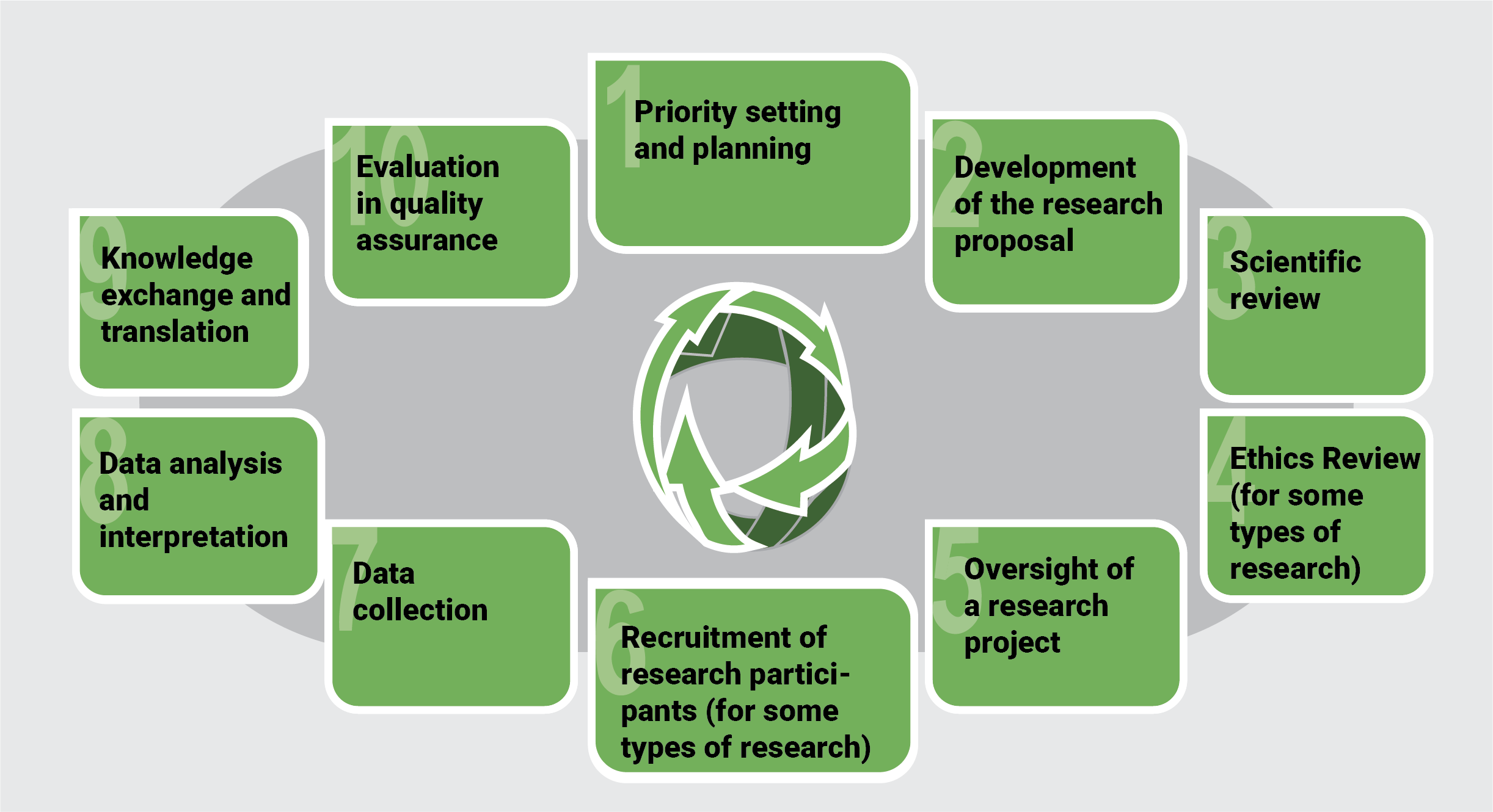Main Menu

Figure 1. Source: Canadian Institutes of Health Research.
An equal partner on a research team whose valued lived experiences and expertise can inform and advise at all stages of the research cycle including research priorities, study conduct, participant recruitment and retention strategies, data collection and analysis and dissemination of results.
Traditional role of patient as subject/participant in research study.
A continuum of research that engages patients, focusses on patient-identified topics, and/or improves patient outcomes.
Meaningful and active collaboration of patients in any or all phases of research (Figure 1).

The Patient Engagement Platform strives to build community partnerships and research collaborations that enhance health research opportunities and outcomes across Alberta.
With our partners we combine efforts to better hear and include the voices of all Albertans in the health research that matters to them.
Our partners include:
Working with communities on projects that matter to them, helps identify and prioritize relevant research questions as well as build research capacity and create mentorship opportunities in diverse and valued communities. We are excited about the Immigrant Youth Mental Health (IYMH) project which seeks to identify and prioritize questions and concerns that Alberta’s immigrant communities have about youth mental health. Led by the PE Platform, this project is a collaboration with United Voices, Immigrant Services Calgary, and the Mental Health Commission of Canada.
The aim of the project is to identify the unanswered questions about youth mental health in Alberta’s newcomer communities. The results of this priority-setting project can help guide future research, be available for mental health advocacy, and serve as a framework for future collaborations. The results may also help inform more culturally appropriate mental wellness policy and practice.

Based on a modified James Lind Alliance for priority setting and public participation, this collaboration with Addictions and Mental Health Strategic Clinical Network (AMH SCN) and the Canadian Depression Research Intervention Network (CDRIN) focused on gathering ‘uncertainties’ in depression research from the perspective of persons with lived experience, carers/caregivers and clinicians.
The project looked to develop a top ten priority list as identified by those impacted by depression in Alberta. Considered a demonstration project as resources (people, money) provided with a goal to evaluate input, impact and value of the PE Platform.
Learn more about the Depression Research Priority Setting Project
Plain English Summary of the Alberta Depression Research Priority Setting Project

This collaboration with the Critical Care Strategic Clinical Network (CC SCN) is generating new knowledge to empower critically ill older patients and their families to advocate for care that reflects their needs and to build knowledge translation (KT) capacity that helps to ensure care is informed by the best evidence.
This Pan Canadian project focused on research priorities as identified by kidney disease and transplant patients (James Lind Alliance partnership).
The Can–SOLVE CKD Network aims to overcome the challenges preventing the uptake of research evidence into practice. Can–SOLVE CKD is one of five chronic disease networks funded by the Canadian Institutes of Health Research (CIHR) through the Strategy for Patient-Oriented Research (SPOR).
Learn more about the Can-SOLVE CKD Network
Let us know how you want to stay connected


 News + Events
News + Events

 Patient Partner Research Opportunities
Patient Partner Research Opportunities

 I agree to receive occasional emails from AbSPORU.
I agree to receive occasional emails from AbSPORU.University of Calgary Foothills Campus
3330 Hospital Dr NW
Calgary, AB T2N 4N1
University of Alberta North Campus
Edmonton Clinic Health Academy (ECHA)
11405 87 Ave NW
Edmonton, AB T6G 1C9
The Alberta SPOR SUPPORT Unit operates on and acknowledges the lands that are the traditional and ancestral territory of many peoples, presently subject to Treaties 6, 7, and 8. Namely: the Blackfoot Confederacy – Kainai, Piikani, and Siksika – the Cree, Dene, Saulteaux, Nakota Sioux, Stoney Nakoda, and the Tsuu T’ina Nation and the Métis People of Alberta. This includes the Métis Settlements and the Métis Nation of Alberta. We acknowledge the many First Nations, Métis and Inuit who have lived in and cared for these lands for generations. We make this acknowledgment as a reaffirmation of our shared commitment towards reconciliation, and as part of AbSPORU’s mandate towards fostering health system transformation.
© 2025 AbSPORU